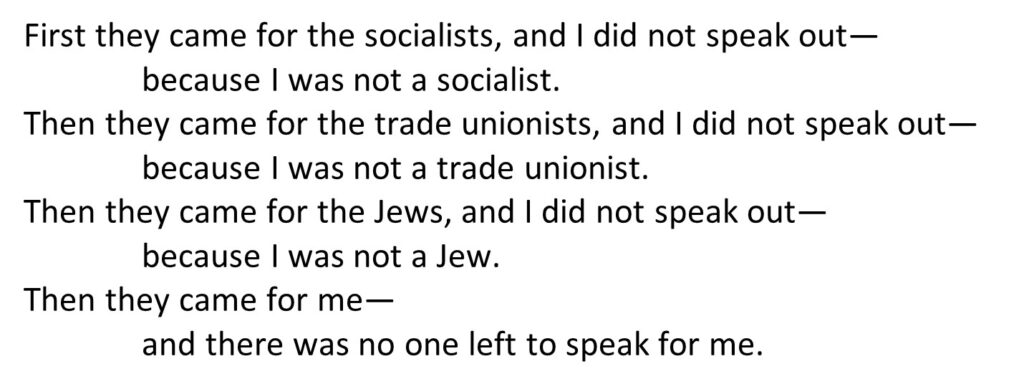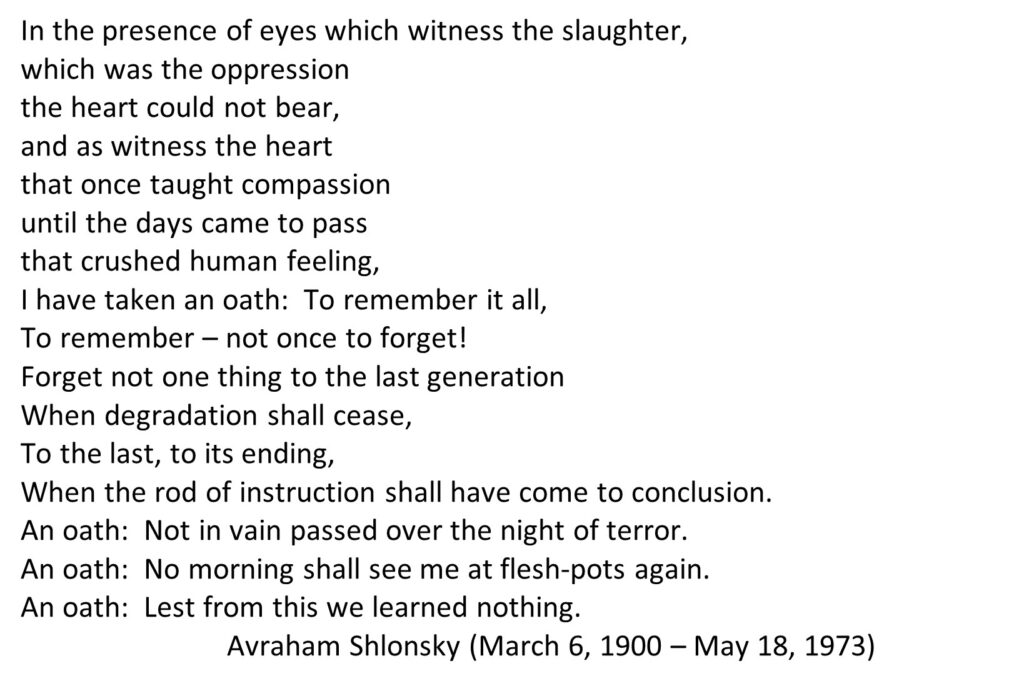Laconia, November 9, 2021 – Eighty-three years after the “The Night of Broken Glass,†also known as Kristallnacht, Temple B’nai Israel joined in a global campaign to unite in solidarity against antisemitism, racism, hatred, and intolerance by keeping the lights on from sundown to sunup. “Let There Be Light†was launched in 2020 by the International March of the Living, an annual educational program, bringing individuals from around the world to Poland and Israel to study the history of the Holocaust and to examine the roots of prejudice, intolerance, and hatred. Since its inception in 1988, more than 260,000 alumni from 52 countries have marched down the same 3-kilometer path leading from Auschwitz to Birkenau on Holocaust Remembrance Day – Yom Hashoah – as a tribute to all victims of the Holocaust. The “Let There Be Light†initiative has reached millions around the world, brought together over 700 Houses of Worship of all faiths and institutions and partners from over 75 countries; and has been featured in over 120 news outlets worldwide. The message of spreading light over the darkness of hate was displayed on the façade of the Coventry Cathedral in the United Kingdom and on the walls of the Old City in Jerusalem.
The Holocaust is not just a Jewish issue it is a universal issue. We must learn from the past, so that a more tolerant and just society will evolve for the betterment of all humankind.
David Machlis Ph.D, Adelphi University and Vice Chairman of the International March of the Living
As the sun set in Laconia a group of temple members and community leaders including newly re-elected mayor, Andrew Hosmer, and city councilman from Ward 4, Mark Haynes, gathered on the front steps of the temple on Court Street to commemorate the events of November 9, 1938, when violent anti-Jewish demonstrations broke out across Germany, Austria, and the Sudetenland region of Czechoslovakia. Nazi officials depicted the riots as justified reactions to the assassination of German foreign official Ernst vom Rath, who had been shot two days earlier by Herschel Grynszpan, a 17-year-old Polish Jew distraught over the deportation of his family from Germany.
Over the next 48 hours, violent mobs, spurred by antisemitic exhortations from Nazi officials, destroyed hundreds of synagogues, burning or desecrating Jewish religious artifacts along the way. Acting on orders from Gestapo headquarters, police officers and firefighters did nothing to prevent the destruction. All told, approximately 7,500 Jewish-owned businesses, homes, and schools were plundered, and 91 Jews were murdered. An additional 30,000 Jewish men were arrested and sent to concentration camps. Nazi officials immediately claimed that the Jews themselves were to blame for the riots, and a fine of one billion reichsmarks (about $400 million at 1938 rates) was imposed on the German Jewish community.
The Nazis came to call the event Kristallnacht (“Crystal Night,†or, “The Night of Broken Glassâ€), referring to the thousands of shattered windows that littered the streets afterwards, but the euphemism does not convey the full brutality of the event. Kristallnacht was a turning point in the history of the Third Reich, marking the shift from antisemitic rhetoric and legislation to the violent, aggressive anti-Jewish measures that would culminate with the Holocaust.
The lights were shining from every window inside Temple B’nai Israel as the brief ceremony began with a reading of Martin Niemöller’s poignant poem, “The Quotation.†Niemöller was a prominent Lutheran pastor in Germany. He emerged as an outspoken public foe of Adolf Hitler and spent the last seven years of Nazi rule in concentration camps. He is perhaps best remembered for these postwar words that were read by temple member Lois Kessin:

Following Lois, Barbara Katz, a member of the Board of Directors of Temple B’nai Israel, recited a poem selected by TBI Rabbi, Dan Danson:

Because the world has still not learned the lessons of the past and attacks on Houses of Worship of all faiths continuously occur, time and time again, it is vital to keep the lights on and illuminate the cause of righteousness and justice.
